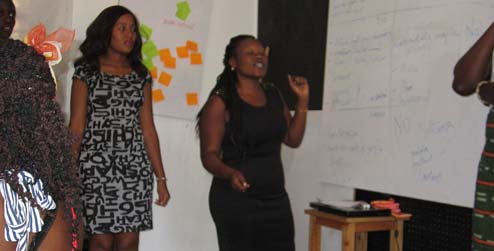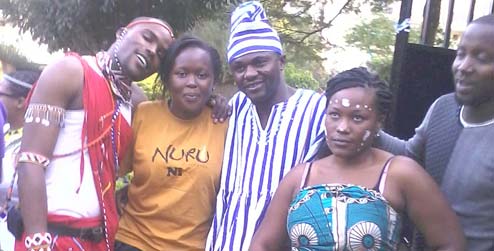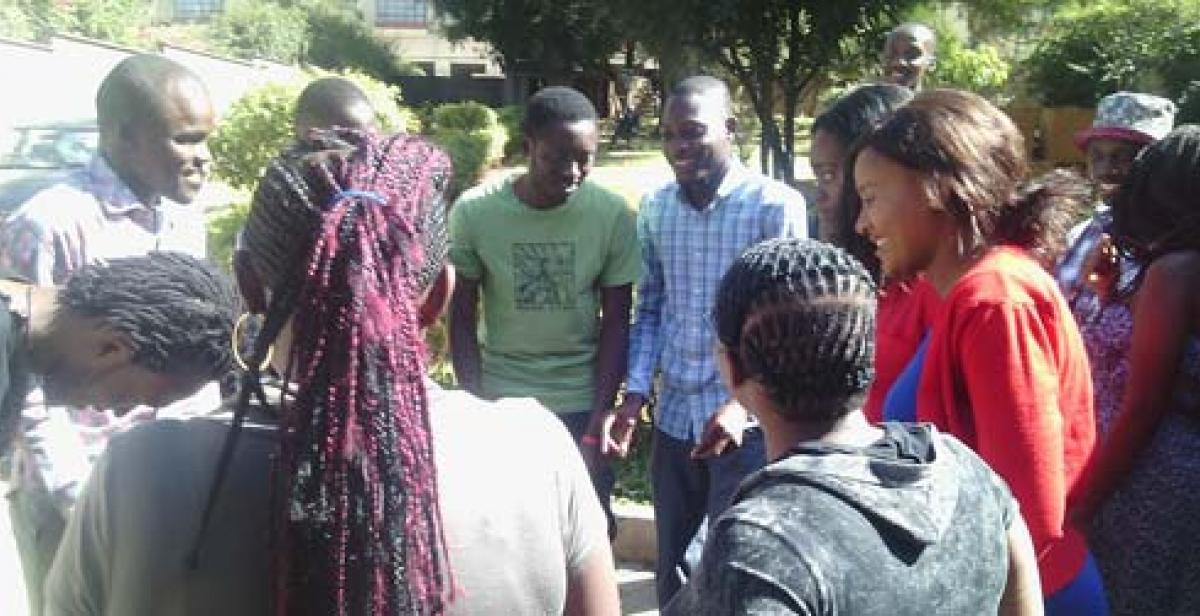I arrived well in Nairobi, Kenya, on Sunday 8 February together with other in-country ICS volunteers from Botswana, Zambia, Togo, Burkina Faso, Zimbabwe, Nigeria, Ghana, South Africa, Tanzania, Rwanda and Kenya, and started the training on Monday. We firstly had an orientation about global platforms and what it is all about and what our expectations were for the training. We also had introductions from in-country volunteers from the different organisation’s delivering ICS, such as VSO, Progressio, Tearfund, Balloon, Raleigh, just to mention a few.
Then we had training sessions on human rights and human rights violations with a guest speaker, a human rights activist, Mr Sangwa. We were able to say what we know about human rights and how human rights are often violated in our countries, what can be done to reduce violations, and how we can make sure people know about their rights.
Another training we had was on documentation, on which we discussed its importance and were trained on how to document. After the training, we had an activity in which we were sent to Kibera, one of the biggest slums in the world, to document about human rights. We later edited the videos.
 My team going to document about the violence women face in Kibera
My team going to document about the violence women face in Kibera
We also had a training session on youth participation and partnership and were able to share what most youths face in Africa politically, financially and mentally. We able to learn how we can overcome the challenges we face and how youth can be empowered so that they also have a chance to participate in development. We had a guest speaker, the National Youth Council Secretary, who gave us more knowledge on how we can become leaders and avoid being let down by others.
 A drama portraying how youths are affected in their everyday life by others
A drama portraying how youths are affected in their everyday life by others
Another training session was on facilitation and we were taught how we can prepare a facilitation session. We had an exercise in which we were divided into groups and conducted the session in the groups. We were then divided in two and each group gave a presentation.
 A facilitation exercise
A facilitation exercise
The last training of the week was on campaigning. We shared what we think a campaign is and how it can be done. Then Mary Ndiritu shared with us what a campaign is, how to ensure that a large group of people are able to get the message and all the strategies that can be used to do this.
For extra evening activities, we had a cultural night, where we had a discussion about life during and after ICS and also watched a movie called Bringing Down the Dictator.
 Cultural night
Cultural night
I have learnt a lot from the training sessions and feel able to practice it and also train other youths in Malawi, especially on the area of human rights, of which most people have little knowledge. It will be easy for me to facilitate a session after this training. I have also learnt a lot about what is happening in other African countries and their cultures and have enjoyed the good interaction between the in-country volunteers.
Written by ICS volunteer Tamara Bota, Progressio Malawi representative at the ICS In-country Volunteers’ Alumni Training



